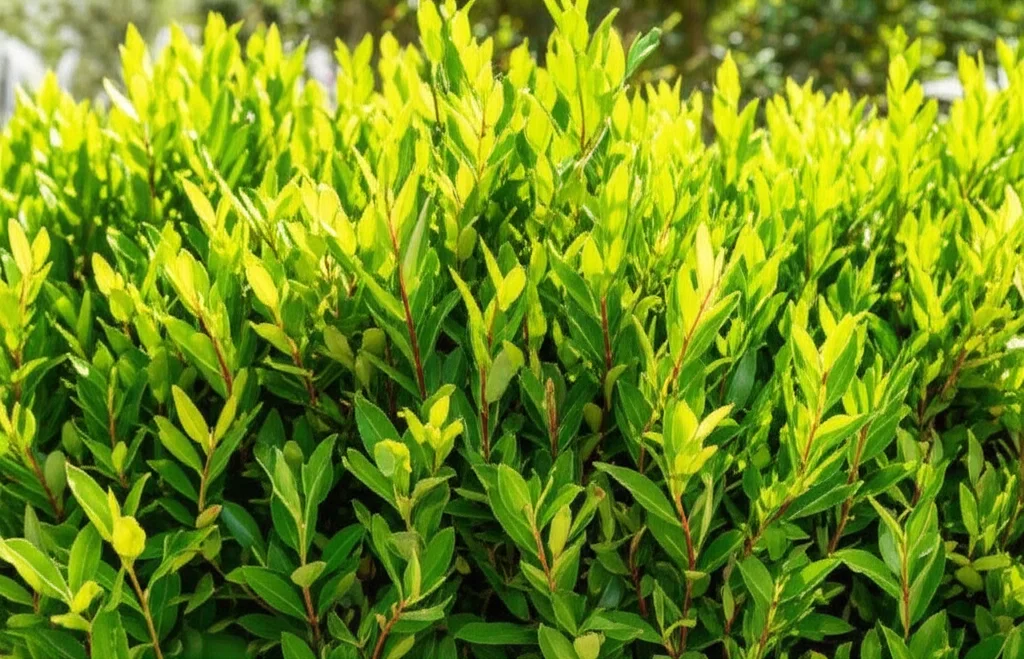Choosing the best Florida privacy hedge can transform your backyard into a secluded sanctuary. This guide explores top plant picks, considering factors like growth rate, maintenance, and aesthetic appeal, to help you create the perfect natural screen for your Florida home.
Seeking privacy in your Florida yard? This comprehensive guide will help you select the ideal hedge plants for your needs, offering insights into various species suited to Florida’s climate and providing practical advice for planting and maintenance.
Understanding Your Privacy Hedge Needs
Before diving into specific plant recommendations, consider these key factors:
Desired Height and Width: How tall and wide do you need your hedge to be? Some plants grow rapidly into towering screens, while others remain smaller and more manageable.
Maintenance Level: Are you looking for a low-maintenance option or willing to dedicate time to regular pruning and care?
Sunlight Exposure: Does your chosen location receive full sun, partial shade, or full shade? This will determine which plants will thrive.
Soil Type: Florida’s diverse soil types range from sandy to clay-rich. Choose plants that are well-suited to your specific soil conditions.
Aesthetic Preferences: Do you prefer a formal, manicured hedge or a more natural, informal look? Consider leaf texture, color, and flowering potential.
Top Florida Privacy Hedge Plant Picks
1. Ficus Benjamina (Weeping Fig)
Pros: Fast-growing, dense foliage, creates a lush, tropical look.
Cons: Can be invasive, requires regular pruning, susceptible to cold damage.
Best For: Quick privacy screens in warmer areas, suitable for formal or informal hedges.
2. Podocarpus macrophyllus (Yew Pine)
Pros: Low-maintenance, drought-tolerant, pest-resistant, adaptable to various soil types.
Cons: Slow to moderate growth rate.
Best For: Low-maintenance hedges, coastal areas, formal or informal styles.
3. Viburnum suspensum (Sandankwa Viburnum)
Pros: Dense, upright growth habit, attractive fragrant flowers, attracts pollinators.
Cons: Requires regular pruning to maintain desired shape.
Best For: Formal hedges, adding fragrance to the landscape, attracting wildlife.
4. Clusia guttifera ‘Nana’ (Dwarf Clusia)
Pros: Compact growth habit, drought-tolerant, salt-tolerant, ideal for smaller spaces.
Cons: Slow growth rate.
Best For: Low hedges, borders, foundation plantings, coastal areas.
5. Pittosporum tobira (Japanese Pittosporum)
Pros: Fragrant flowers, dense foliage, relatively low maintenance.
Cons: Can be susceptible to pests and diseases in some areas.
Best For: Medium-sized hedges, adding fragrance to the garden, attracting pollinators.
6. Arboricola (Schefflera)
Pros: Fast-growing, creates a tropical feel, adaptable to various light conditions.
Cons: Can become leggy if not pruned regularly.
Best For: Quick privacy screens, creating a lush backdrop, container gardening.
7. Ligustrum japonicum ‘Texanum’ (Wax Leaf Ligustrum)
Pros: Fast-growing, dense foliage, tolerant of pruning, creates a formal look.
Cons: Can become invasive in some areas.
Best For: Quick privacy screens, formal hedges, topiary.
Planting and Maintaining Your Florida Privacy Hedge
Spacing: Research the mature size of your chosen plant and space them accordingly. Overcrowding can lead to disease and poor growth.
Soil Preparation: Amend the soil with organic matter to improve drainage and fertility.
Watering: Water deeply and regularly, especially during the establishment period. Reduce watering frequency once established.
Fertilizing: Feed your hedge with a balanced fertilizer during the growing season.
Pruning: Regular pruning will help maintain the desired shape and density of your hedge.
FAQs: Frequently Asked Questions about Florida Privacy Hedges
What is the fastest-growing privacy hedge for Florida? Ficus benjamina and Ligustrum japonicum are among the fastest-growing options.
What are some low-maintenance privacy hedge options for Florida? Podocarpus macrophyllus and Clusia guttifera ‘Nana’ are known for their low-maintenance requirements.
What are the best privacy hedge plants for coastal areas in Florida? Podocarpus macrophyllus and Clusia guttifera ‘Nana’ are salt-tolerant and well-suited to coastal conditions.
How often should I prune my privacy hedge? Pruning frequency depends on the plant species and desired shape. Generally, pruning once or twice a year is sufficient.
Where can I buy privacy hedge plants in Florida? Local nurseries and garden centers are excellent resources for finding high-quality hedge plants.
Choosing the Right Plants for Your Privacy Needs
Selecting the best Florida privacy hedge requires careful consideration of several factors. By understanding your specific needs and researching the characteristics of different plant species, you can create a beautiful and functional natural screen that enhances the privacy and beauty of your outdoor space. This guide offers valuable insights into the top plant picks, encompassing factors like growth rate, maintenance levels, sun exposure, and aesthetic preferences. Whether you desire a fast-growing screen, a low-maintenance option, or a fragrant addition to your landscape, there’s a perfect Florida privacy hedge to suit your taste and create your personal backyard oasis. Remember to consult with local experts or nursery professionals for further guidance tailored to your specific region and site conditions. This will help you select the right plants for your needs and ensure their successful establishment, creating a thriving and private retreat in your Florida home. Don’t forget to factor in the mature size of your chosen hedge plant to avoid overcrowding and ensure a long-term, beautiful addition to your landscape.
Conclusion
Creating a private sanctuary in your Florida backyard is achievable with the right selection of privacy hedge plants. This guide has explored the top contenders, highlighting their strengths and weaknesses. By carefully considering factors like growth rate, maintenance needs, and aesthetic appeal, you can transform your outdoor space into a secluded and beautiful haven. Choose wisely and enjoy the benefits of a lush, private retreat in your Florida home.

